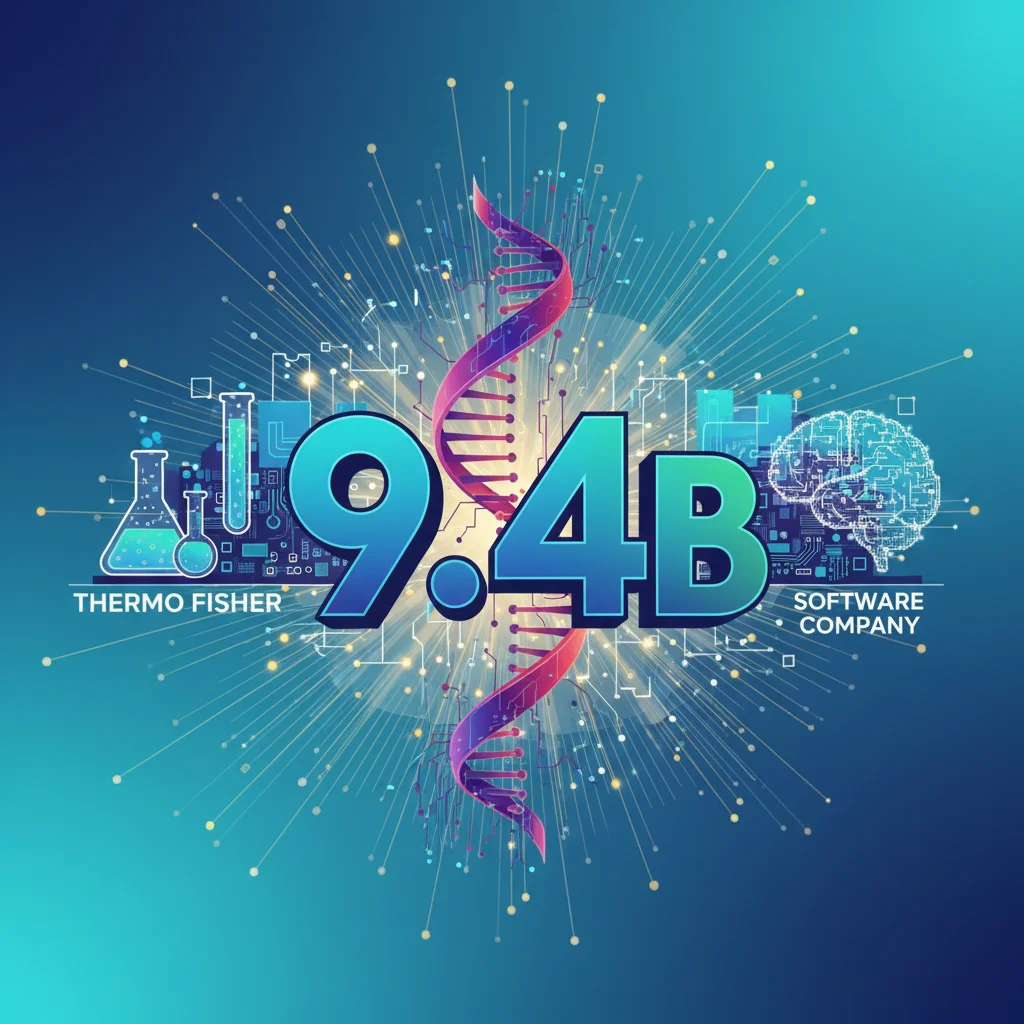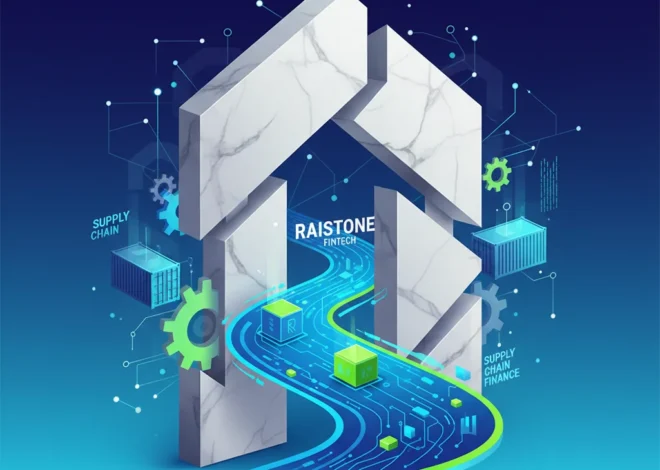
The $9.4 Billion Bet on Code: Why Thermo Fisher’s Mega-Deal for a Software Company Is Reshaping Medicine
In the high-stakes world of technology and finance, nine-figure deals raise eyebrows. But when a number approaches ten figures—specifically, $9.4 billion—it’s not just a headline; it’s a seismic event. That’s the staggering sum scientific instrument giant Thermo Fisher is willing to pay to acquire Clario, a company you’ve likely never heard of. And here’s the twist: Clario doesn’t discover new drugs or manufacture lab equipment. It writes code.
This acquisition, one of the largest private equity exits of the year, is a powerful declaration about the future. It signals that the engine of modern medicine is no longer just the test tube and the microscope, but the server, the algorithm, and the cloud. For developers, entrepreneurs, and tech professionals, this deal is a flashing neon sign: the life sciences industry is undergoing a profound digital transformation, and the demand for sophisticated software, AI, and data expertise has never been higher.
Let’s unpack why a legacy giant is spending a fortune on a SaaS company and what it means for the future of technology and healthcare.
Who is Clario, and Why Are They Worth $9.4 Billion?
To understand the price tag, you have to understand the problem Clario solves. Developing a new drug is an excruciatingly long and expensive process. A significant chunk of that time and money—often billions of dollars and a decade of work—is spent on clinical trials. These trials are the bedrock of modern medicine, the rigorous process of testing a new treatment on human subjects to prove it’s safe and effective.
Traditionally, this process has been a logistical nightmare. Imagine mountains of paperwork, patient data collected manually across dozens of hospitals in different countries, and medical images (like X-rays or MRIs) analyzed by the human eye. It’s slow, prone to error, and incredibly inefficient.
Clario builds the digital infrastructure to fix this. They are a leader in clinical trial technology, providing a unified cloud-based platform that manages the entire lifecycle of a trial. Their software helps pharmaceutical companies:
- Collect patient data electronically, whether in a clinic or remotely via wearable devices.
- Manage complex trial logistics and workflows through automation.
- Centralize and analyze medical imaging data using sophisticated algorithms.
- Ensure data integrity and regulatory compliance.
In essence, Clario provides the digital nervous system for modern drug development. By digitizing and streamlining this process, they help drug makers run trials faster, with higher quality data, and at a lower cost. In an industry where a single day’s delay can cost a company millions in lost revenue, that value proposition is worth billions.
To truly grasp the shift, consider the stark differences between the old way and the new.
The table below illustrates the revolutionary impact of technology on clinical trials.
| Aspect of Clinical Trial | Traditional Approach (Pre-Software) | Tech-Enabled Approach (The Clario Model) |
|---|---|---|
| Data Collection | Manual, paper-based case report forms. High risk of human error. | Electronic data capture (eCOA/ePRO) via tablets and apps. Real-time, cleaner data. |
| Patient Access | Limited to participants living near major research hospitals. | Decentralized trials allow patients to participate from home using wearables and telemedicine. |
| Trial Duration | Often a decade or more, with significant time spent on data cleanup. | Automation and real-time monitoring can significantly shorten timelines. |
| Data Analysis | Slow, manual statistical analysis. Insights are often delayed. | AI and machine learning algorithms analyze vast datasets to spot trends and safety signals instantly. |
| Security & Compliance | Physical security of paper records. Complex compliance tracking. | Robust cybersecurity protocols, automated audit trails, and centralized compliance management. |
Mars is a Software Problem We Haven't Solved Yet
The AI and Machine Learning Supercharger
While cloud software and automation are the foundation, the real game-changer is the integration of artificial intelligence. The global market for AI in drug discovery is exploding, projected to reach nearly $10 billion by 2030. This isn’t science fiction; it’s happening now, and companies like Clario are at the forefront.
Here’s how AI and machine learning are transforming clinical trials:
- Smarter Patient Recruitment: AI can scan millions of electronic health records to find the perfect candidates for a trial in minutes, a process that used to take months of manual work.
- Predictive Analytics: Machine learning models can predict which patients are most likely to drop out of a trial, allowing for proactive intervention. They can also help identify potential safety issues before they become major problems.
- Intelligent Image Analysis: For diseases like cancer, AI algorithms can analyze MRIs or CT scans with a level of precision and speed that surpasses human radiologists, identifying subtle changes in tumors to measure a drug’s effectiveness.
- Data-Driven Insights: By analyzing the colossal datasets generated during a trial, AI can uncover hidden correlations and biomarkers, leading to new scientific discoveries and more personalized medicine.
Thermo Fisher isn’t just buying a software company; it’s acquiring a data and AI powerhouse that sits at the most critical juncture of drug development.
Why This Deal Matters to You (Even If You’re Not in Pharma)
A $9.4 billion handshake between two industry titans can feel distant, but its ripples will be felt across the tech landscape. Here’s the breakdown for different groups:
For Entrepreneurs and Startups:
This is a massive validation. It proves that building highly specialized, mission-critical B2B SaaS platforms for legacy industries is an incredibly lucrative strategy. The “unsexy” industries—like clinical research, logistics, or manufacturing—are ripe for digital disruption. This deal screams that there are multi-billion dollar exit opportunities for startups that can solve deep, complex problems with elegant software and innovation. The key takeaway: don’t just chase consumer trends; look for the gnarliest, most regulated, and most inefficient industrial processes you can find. That’s where the real value is hiding.
Eyes in the Sky: How Belgium's AI Drone Network Aims to Win the Invisible Wars of Tomorrow
For Developers and Tech Professionals:
The demand for tech talent in the life sciences is about to go parabolic. This isn’t just about standard web development. This sector needs experts in:
- Cloud Architecture: Building scalable, secure, and compliant multi-tenant SaaS platforms on AWS, Azure, or GCP.
- Cybersecurity: Protecting an organization’s most valuable asset—sensitive patient health information—is a non-negotiable, top-priority challenge.
- AI/ML Engineering: Developing, training, and deploying machine learning models for everything from image analysis to predictive analytics. Experience with Python, TensorFlow, and PyTorch in a regulated environment is gold.
- Data Engineering & Programming: Creating robust data pipelines to handle the massive, complex, and varied datasets that flow from clinical trials worldwide.
If you’re looking for a career with purpose, impact, and immense technical challenges, the intersection of programming and healthcare is the place to be.
The Road Ahead: Integration, Regulation, and the Promise of Faster Cures
The journey is far from over. Integrating two massive organizations will be a monumental task for Thermo Fisher. Furthermore, the regulatory landscape for using AI in clinical decision-making is still evolving. As a recent article in Nature Medicine highlights, ensuring fairness, transparency, and accountability in medical AI is a critical hurdle the entire industry must overcome.
Data privacy and cybersecurity will also remain paramount. A single breach involving sensitive trial data could be catastrophic, both for patients and for the company’s reputation. Building and maintaining trust is as important as building the technology itself.
The Billion Nuclear Gamble: Can Sam Altman's Oklo Reinvent Energy for the AI Era?
Despite these challenges, the destination is worth the journey. By weaving technology into the fabric of drug discovery, deals like this one pave the way for a future where life-saving treatments are developed faster, more efficiently, and at a lower cost. It’s a future where a new drug isn’t just a chemical compound, but a fusion of biology and bits, of molecules and machine learning.
The Thermo Fisher-Clario deal is more than a financial transaction. It’s a bold investment in a future where code is a key ingredient in the cure. It’s a testament to the power of software to solve humanity’s most pressing problems, and a clear signal that the digital revolution in medicine is just getting started.


